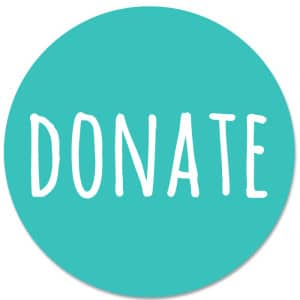Waiheke Island Mother’s Survey 2014
This survey was carried out by Mothers Helpers (Charitable Trust) from October 2013-August 2014. 67 mothers on the Island participated. Mothers Helpers only targeted mothers with a child 2 years old or younger, or was pregnant. Mothers participated by filling in surveys at Ostend Markets, Waiheke Playgroup (Blackpool), several Early Childhood centres and online via Waiheke Facebook groups. Surveys were also given to the well child nurse, Piritahi Hauora and the midwives. The majority of completed surveys came from Ostend markets and online. The surveys were anonymous unless a mother chose to give her name at the end – this has been kept confidential for Mothers Helpers follow-up only.
About the Mothers Who Participated
36% were aged between 30 and 35
33% were aged between 35 and 40
30% were aged between 22 and 30
1% were aged under 22yo
87% of Mothers Had at Least One Risk Factor (Predictor) for Postnatal Depression
Risk Factors Include (but are not limited to):
Risk Factor Percentage of Waiheke Mothers
- No family support on the Island 39%
- Less than 6hrs continuous sleep 38%
- Financial problems 24%
- Previous Depressive Episode 17% and a further 8% were sure it was depression but it was not diagnosed
- Were/will be a single mother 15%
- Having relationship difficulties 11%
- Traumatic birth experience 11%
- Unwell baby (incl colic/reflux) 12%
- Breastfeeding problems 6%
Comments
Mothers Helpers invested a great deal of time and energy into collecting these surveys. It was disappointing not to have had any surveys come back from the Waiheke Health Trust well child nurse, Piritahi Hauora well child and the midwives so that we could better understand the needs and risk-factors of mothers on Waiheke Island. However, despite the relatively small sample, of the 67 mothers that participated, 58 had risk-factors for Postnatal Depression. These risk factors (or indicators) for Postnatal Depression have been identified internationally through various studies and research.
The risk factors to note specifically were the 25% who had a previous depressive episode, the 39% who said they had no family support on the Island and the 38% who said that they got less than 6 hours of sleep in any one time. Studies have shown that a previous depressive episode prior to pregnancy or childbirth is the highest indicator or risk-factor for Postnatal Depression.
Recommendations
Mothers Helpers would like to make the following recommendations:
- That further research is undertaken by health providers to assess the risk factors of mothers in their community.
- Given that 87% of mothers that took our survey showed risk-factors and 25% with a previous depressive episode, Mothers Helpers would like to recommend that Midwives and Well Child Nurses are screening their mothers for risk-factors (indicators pointing to the potential for the development of Postnatal Depression). As per New Zealand clinical guidelines, Mothers Helpers recommends using the Antenatal Risk Questionnaire which is internationally recognized as a valuable screening tool[1] and for those showing risk-factors they are monitoring depression/anxiety symptoms both ante-natally and post-natally using the Edinburgh Postnatal Depression Scale which is also recognized internationally as a valuable screening tool.[2] Since these can be filled out prior to an appointment, they are both cost effective and time-saving.
- With 39% of mothers saying they have no family support on the Island and 38% saying that they get less than 6 hours sleep at one time (both of which are risk factors for Postnatal Depression), Mothers Helpers recommends a facility similar to that provided by Plunket Family Centres where a drop-in, respite (childcare while mother sleeps) and education service is provided in regions nationwide free of charge. Our understanding is that a similar facility had been set up on Waiheke Island briefly in the past and our hope is that a venture like this is supported again. A drop-in service with respite capability could be partnered with other existing supports addressing risk-factors such as La Leche League offering breastfeeding support, the Budgeting Service offering financial support as well as parent education and counselling services.
- Mothers Helpers can still provide support to mothers on Waiheke Island who are found to be at-risk or diagnosed with Postnatal Depression in the form of assessments, referrals, goal-setting, practical help and a 10 week Postnatal Depression Recovery course at a cost to them of $10/week for 12 weeks. Mothers are showing significant changes/progress upon completion of the Recovery course. We are asking for referrals (with the mother’s consent) from health providers to assist and provide support to mothers in this way. Health providers can refer mothers to our service via this online referral form: https://www.mothershelpers.co.nz/referral-2
Closing Statement
It is worth noting that any preventative measures in the way of support to young families is preferable since moderate-severe postnatal depression support requires specialized help from the ADHB and in practical terms, trips to Auckland hospital via ferry which is problematic for families already stretched financially and in terms of improving access to health services and reducing barriers.
[1] http://www.blackdoginstitute.org.au/docs/ANRQclinicians.pdf
[2] http://www.fresno.ucsf.edu/pediatrics/downloads/edinburghscale.pdf
To find out more about the needs of mothers on Waiheke Island:
2 Minute Brief Presentation on Postnatal Depression on Waiheke Island
Waiheke Island Postnatal Depression Short-Film
Report by Kristina Paterson.
These Survey results and report has been forwarded to the following organizations on March 26th 2015:
Auckland PHO Barbara Stevens
The Manager at Waiheke Health Trust
The Manager at Piritahi Hau Ora
Waiheke Island Council of Social Services
The midwives on Waiheke Island
The Waiheke Local Board
Results have also been made available to Waiheke residents via the local Facebook community pages and a report sent to the Gulf News and Waiheke Marketplace.
